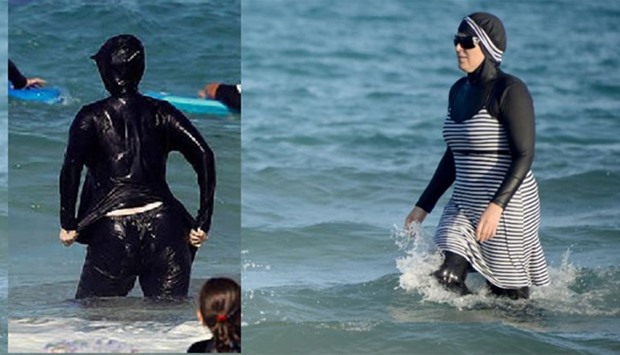* PM Valls says no need for countrywide ban
* Neighbour Italy says such bans could be counterproductive
Ten Muslim women wearing burkinis to the beach have been apprehended by police in the southern French city of Cannes in the three weeks since it imposed a temporary ban on the full body swimsuit, a local official said.
Arguing that the burkini defies French laws on secularism, Cannes is one of three towns in France to have banned the garment amid tensions after an Islamist militant attack in nearby Nice killed 85 people on Bastille Day on July 14.
The moves have sparked an intense public debate, with Muslim groups calling them unconstitutional, divisive and Islamophobic. The Conseil d'Etat, France's highest administrative court, will rule on the legality of burkini bans in coming days.
In an interview with daily La Provence, Prime Minister Manuel Valls backed the municipal bans, but said he saw no need for nationwide legislation. The women's rights minister has also backed the ban.
In neighbouring Italy, the interior minister said Rome would not be following the French example, arguing a curb might be provocative and even trigger further attacks.
‘It does not seem to me that the French model has worked for the best,’ Angelino Alfano told Corriere della Sera newspaper.
The burkini -- a conflation of the burqa and bikini -- is designed for Muslims who believe that Islam requires women to conceal everything except the face, hands and feet from all men who are not their husbands or unmarriageable kin.
A Cannes townhall spokeswoman told Reuters on Wednesday that since the burkini ban was put in place on July 28, 10 burkini-wearing women have been controlled by police. Six left the beach, four were fined 38 euros ($43), she said.
Police cannot oblige women to leave the beaches for wearing a burkini, and the same person can only be fined once a day. The ban will end on Aug. 31.
‘Following the attacks, the atmosphere is very tense and the burkini is seen as an ostentatious display that can threaten public order, that is why we took the measure,’ she said.
French citizens are on edge following a string of deadly assaults claimed by Islamic State, including attacks in Paris in November 2015 when 130 people were killed and the July 14 attack in Nice, when a militant ploughed a truck into a crowd.
Abdallah Zekri, head of the National Observatory against Islamophobia, told BFM television that some French politicians were using the burkini debate to stigmatize Islam.
‘It is terrible to see that the prime minister stokes the fire rather than trying to put it out,’ Zekri said.
The Cannes official said burkinis first appeared on local beaches last year and that their number was growing. The mayors of Le Touquet and Oye-Plage on the Atlantic coast and Leucate on the Mediterranean have also announced plans to ban the burkini.
The Italian interior minister said the best way to counter the threat of Islamist militancy was to expel radicals, adding that he wanted all Italy's imams to be trained in the country to ensure they worked within clear cultural norms.
Italy has expelled 109 suspected Islamist radicals since last year, including nine imams. ‘We need to shine a light on all places of worship, in full respect of the rules and to avoid mini-mosques in garages,’ Alfano said.

